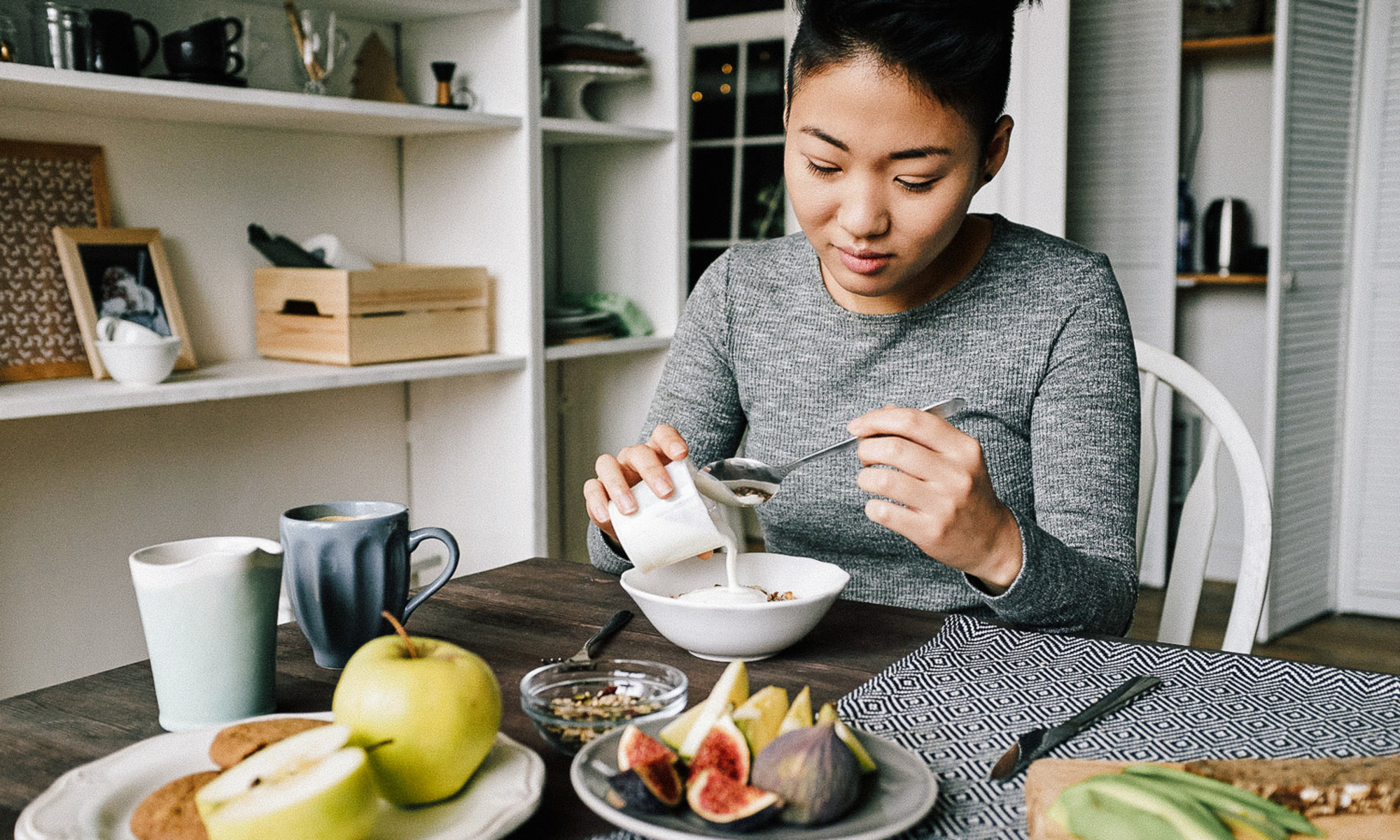I'm A PCOS-Focused Dietitian: These Are My Go-To Nutrition Tips
The keys to improving your nutrition habits are more intuitive than you might think.

Advertisement
This ad is displayed using third party content and we do not control its accessibility features.
Image by Clique Images / Stocksy August 25, 2024 We carefully vet all products and services featured on mindbodygreen using our Our selections are never influenced by the commissions earned from our links. When it comes to commonly misunderstood or invisible illnesses, such as PCOS, determining how to manage it can be difficult. That's because there are plenty of misconceptions about the best (and the worst) ways to keep PCOS symptoms from flaring—many of which are related to diet. According to lead registered dietitian at Allara Felice Ramallo, MSCN, R.D., L.D., the very best nutrition tips for PCOS patients are actually quite simple. Here's what she recommends to her clients, who are attempting to change their eating habits to improve their health: The key to not just starting but actually sustaining healthy habits is to take it one step at a time. "Even one small change can help build a sturdy foundation for health," Ramallo says. "For example, you can aim to add one more serving of veggies per week, or 15 more minutes of walking." Focusing on what you're adding each day rather than what you're subtracting from your old routine can also keep the changes from feeling drastic and unattainable. "Over time, building up slowly will allow you to break free of the all-or-nothing mindset and build lasting habits," she explains. 2. We're not sure who invented the "three meals a day" rule, but consider this your permission to break it. "Eat small, frequent meals and snacks four to six times per day," Ramallo advises, "or as you feel hungry throughout the day." Whenever hunger strikes, Ramallo recommends including carbohydrates, fiber, fat, and protein in your meals. "This will help keep blood sugar stable, prevent uncontrollable hunger from kicking in, reduce cravings, and will help build a stronger relationship and trust in one's body," she says. Whether it's your hunger, your emotions, or your hormones (hello, luteal phase), cravings are generally the body's way of communicating those needs to you. So, Ramallo says to honor those cravings when they hit. "If you want dessert, have it without shame and guilt," she says. "Of course, sugar can make PCOS worse, but there are methods to lower the blood sugar spike." Here's what she recommends if you're craving something sweet: 
Eat frequently throughout the day
The takeaway
The keys to improving your nutrition habits are more intuitive than you might think. "Above all else, you should listen to what feels best for your body," Ramallo emphasizes. "I always say to treat your body like the ultimate source of wisdom on how you nourish it. If you listen, it will tell you what it wants and needs."

 UsenB
UsenB 

































